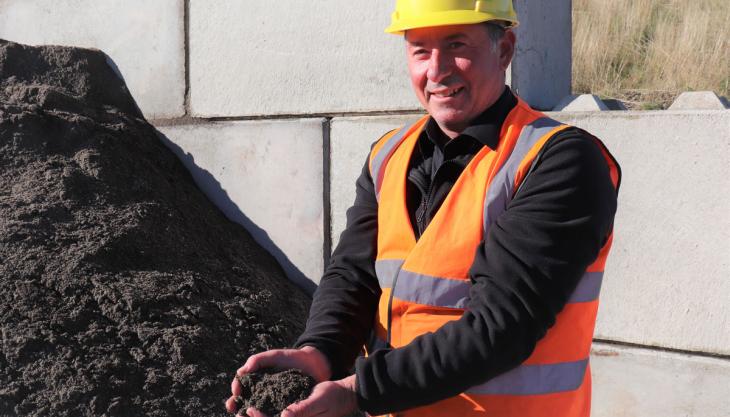New sustainable aggregates achieve non-waste status

Levenseat become first Scottish company to secure ‘end-of-waste’ status for low-carbon aggregates products
LANARKSHIRE-based Levenseat have become the first company in Scotland to secure end-of-waste status from the country's environmental regulator SEPA for their new range of low-cost and sustainable alternative products to virgin aggregates used in construction projects.
Developed by Levenseat’s minerals division, three of the newly certified products – 0–10mm IBA aggregates; 0–25mm IBA aggregates; and IBA aggregate sand – are produced from incinerator bottom ash (IBA), whilst its recycled sand is manufactured from street sweepings and gully waste.
End-of-waste certification ensures these new IBA aggregate products, including IBA sand, can be used as a safe replacement of 50% virgin aggregate material in a bound application. The company’s recycled sand has been approved for use in concrete, civil engineering work and road construction.
Utilizing their IBA innovation, Levenseat have also developed a range of sustainable building products, including the lower-carbon concrete Lev-co Blocks, which are made from a mixture of new aggregates and virgin materials.
Compliant with internationally recognized building and safety standards, Lev-co Blocks is said to offer a long-lasting direct replacement for traditional interlocking concrete blocks, requiring no cement and are fully recyclable at the end of life.
Levenseat’s low carbon product offering is designed to help construction firms reduce their building costs while also minimizing their environmental impact by replacing virgin aggregate within concrete. For each tonne of recycled aggregate used, 29kg CO2 is saved from being emitted.
In 2020 around 2.7 million tonnes of IBA were produced from waste-to-energy plants in the UK. By processing into recycled aggregates and directly replacing virgin mined aggregate used in concrete, a carbon saving of 78,300 tonnes of CO2, equivalent to 41,826 car journeys or 36,520 flights, can be achieved.*
Rob Green, technical director for Levenseat, commented: ‘As a company focused on innovative and sustainable solutions, we’re delighted to be the first in Scotland to achieve end-of-waste status for these aggregate products. This has been a rigorous process, which included detailed technical and environmental analysis and the implementation of a factory control system to ensure the products continually meet the required specifications.
‘The new product range not only offers safe, lower carbon alternatives for the UK construction industry, but it’s also significantly more cost-effective compared to using traditional virgin materials. It represents another progressive step for Levenseat in supporting the journey towards net zero.’
*Carbon footprint savings have been quantified by comparing to number of flights not flown and number of cars removed from the road. This is based on a carbon analysis of a Boeing 737 flying one way between Glasgow and Heathrow, and the average car that drives 15,000km per year.









